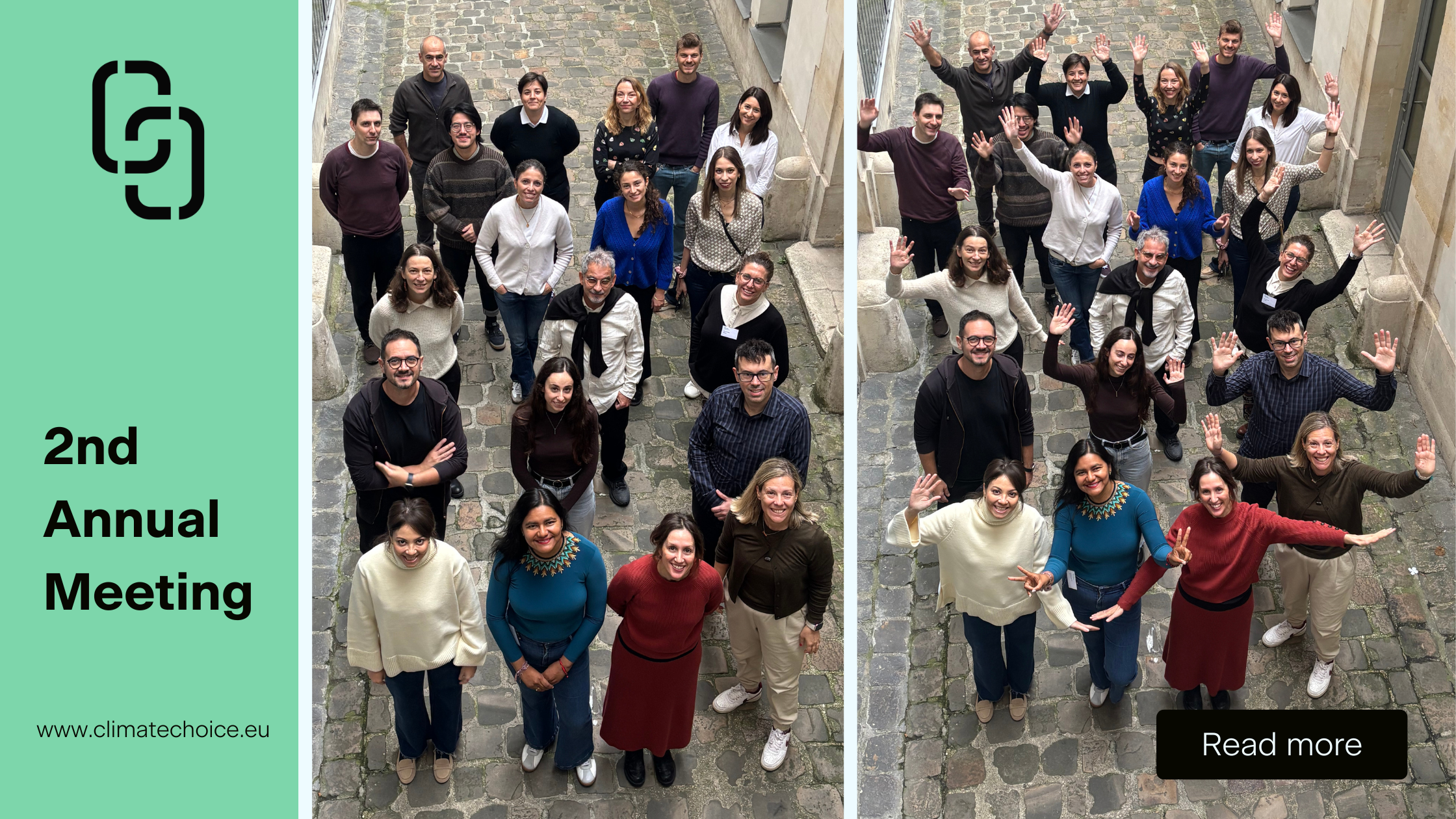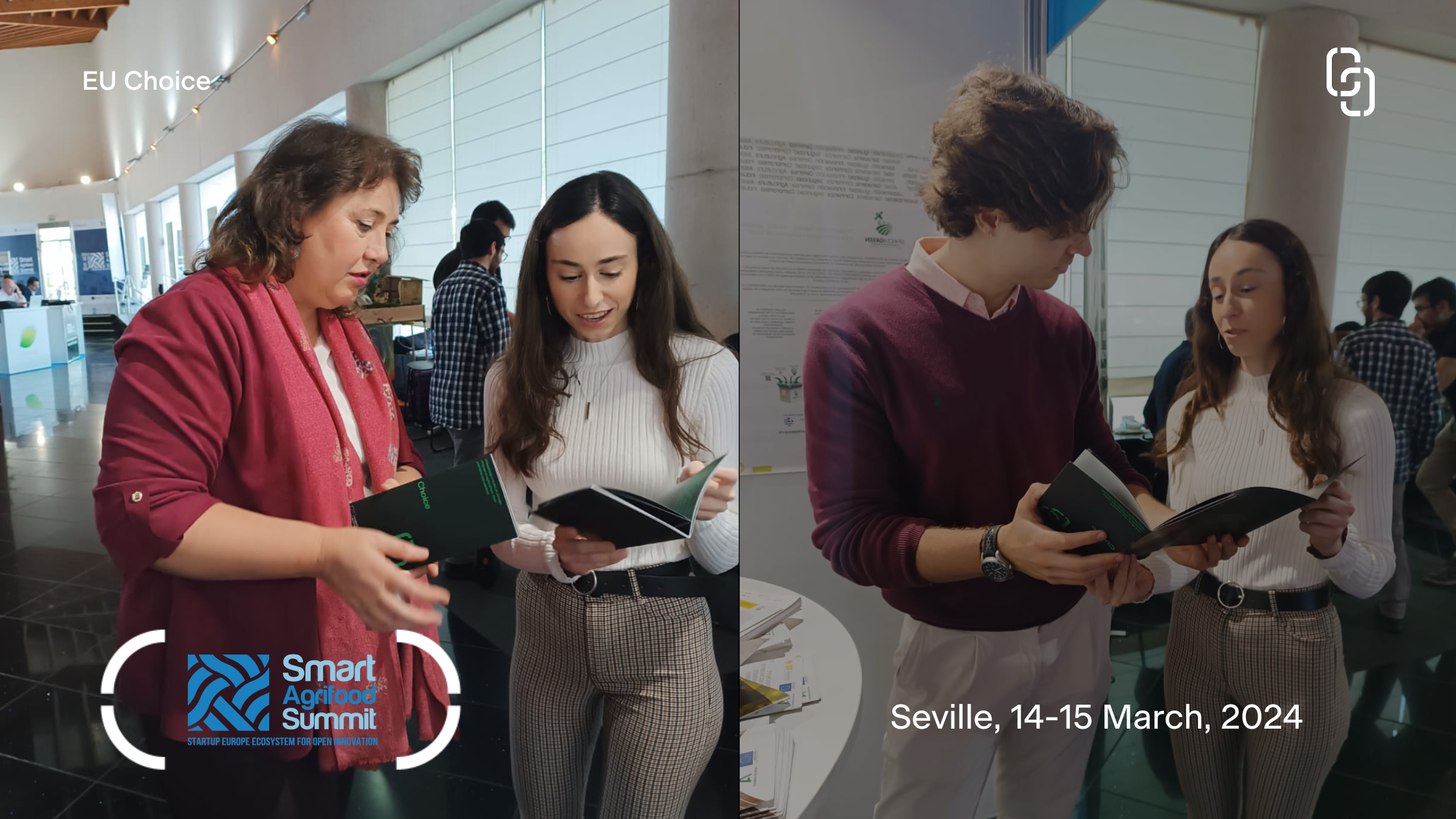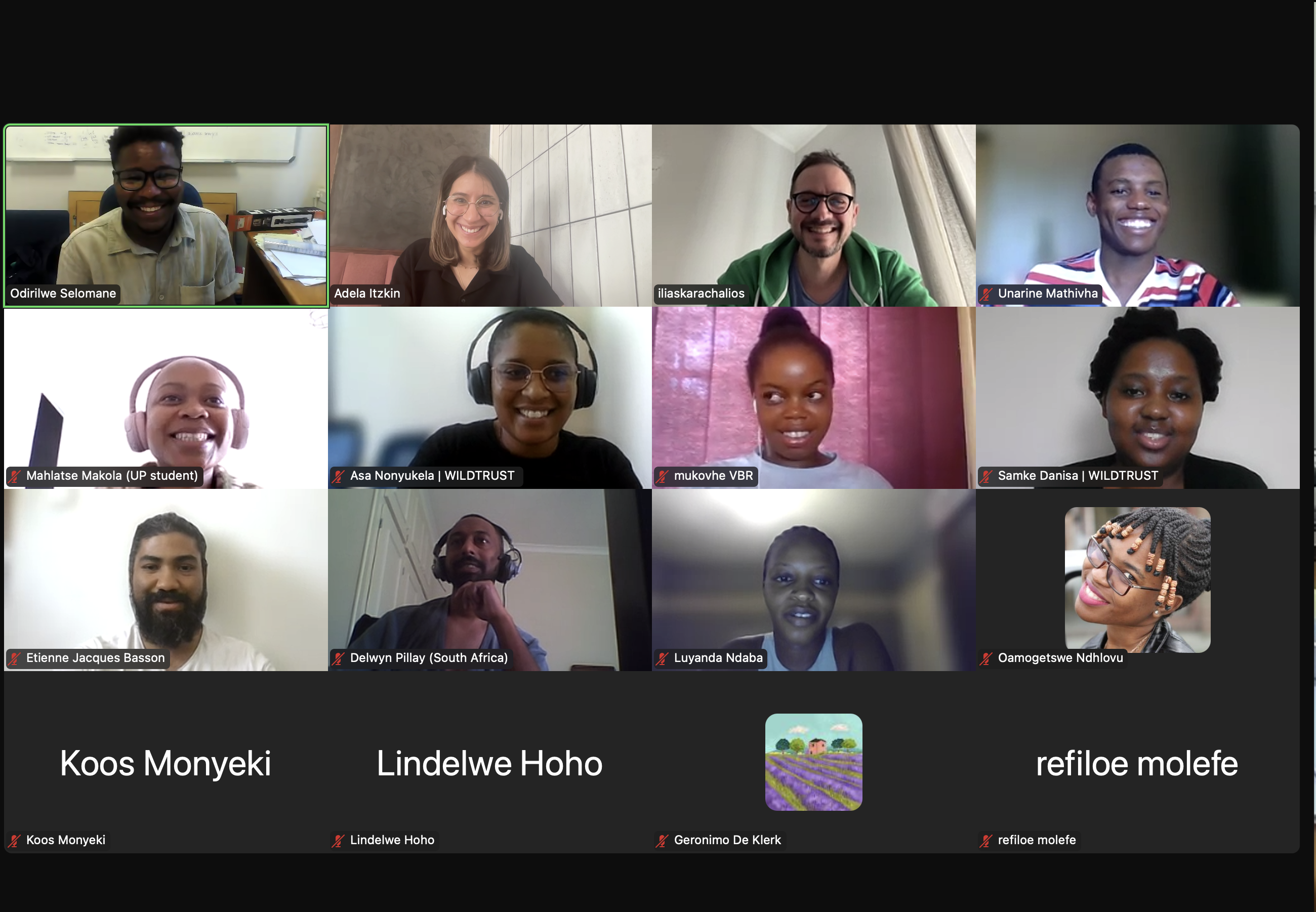
CHOICE 2nd Annual Meeting in Paris: From Models to Meaningful Action
On 6–7 November 2025, the CHOICE consortium gathered in Paris for its 2nd Annual Plenary Meeting, bringing together partners from across Europe, Africa, and Latin America. Over two days, the team reviewed progress, shared insights, and coordinated next steps to scale climate-smart food system transformation.
The meeting was kicked off by Aline Mosnier from SDSN, who warmly welcomed participants and introduced the organisation’s mission and its contribution to advancing the UN Sustainable Development Goals (SDGs) through research and global partnerships. Her remarks set the tone for collaboration and impact — bridging science, society, and policy.
Following this, Nikos Tantaroudas, Project Manager of the project from the ICCS coordination team, provided an overview of the agenda and presented updates on project coordination, administrative milestones, and financial management. He highlighted the consortium’s strong progress across all work packages and confirmed that deliverables and review preparations remain fully on track.
With the foundation set, the discussions moved from campaign design and behavioural insights to the enhancement of Integrated Assessment Models (IAMs) and real-world pilot demonstrations, reflecting the project’s holistic approach — linking behavioural science, data modelling, and local action for sustainable food systems.
From Campaign Design to Real-World Change
The meeting continued with updates on campaign design and behavioural modelling, highlighting how CHOICE is advancing its mission to promote climate-conscious food choices. The implementation of A/B testing, already running through the e-Fresh platform in Greece, marks a key step in assessing and optimising campaign effectiveness. In the coming months, similar data-driven approaches will be deployed in other pilots as they launch their campaigns through local channels.
Enhancing Integrated Assessment Models (IAMs)
CHOICE’s modelling teams — IIASA, SDSN, ERRA, NOA, and ICCS — presented significant advancements in refining and integrating the project’s core Integrated Assessment Models: GLOBIOM, FeliX, and FABLE-C. IIASA introduced improvements to GLOBIOM, integrating diverse consumer profiles and validated dietary data across all pilot regions. The FeliX model was further enhanced with a new lifestyle module representing behavioural archetypes, and the team presented the FeliX Interactive Simulation Environment (ISE) — a web-based tool allowing users to explore and compare policy and behavioural scenarios in real time.
In parallel, NOA contributed new climate indicators tailored to agriculture, enhancing the models’ precision for Mediterranean crops and livestock systems. SDSN and ERRA presented updates to the FABLE Calculator and its own Interactive Simulation Environment (ISE), which simplify scenario analysis and make complex modelling results accessible to both experts and non-experts. ICCS contributed by linking IAM outputs with participatory and digital engagement tools, connecting modelling insights with citizen-facing actions. Together, these developments strengthen CHOICE’s capacity to translate scientific knowledge into actionable policy and behavioural guidance.
Digital Innovation Driving Behavioural Change
Digital innovation was another central theme of the meeting. IIASA presented Hotspot Earth (formerly Climate Survivors), a serious game designed to engage younger audiences in climate learning through interactive storytelling. LIBRA showcased its evolving data storytelling framework, turning modelling insights into visual narratives that connect with citizens. Inoqo demonstrated its carbon labelling platform, improving transparency in sustainable food choices, while ICCS introduced the “Shrink Your Food Waste” app, encouraging everyday actions to reduce environmental impact. Together, these tools show how CHOICE merges science, technology, and behavioural change to inspire collective action.
Global Learning and Local Impact
The meeting also highlighted the progress of CHOICE’s pilot demonstrations — from olive producers in Spain to youth campaigns in South Africa. Each pilot is developing context-specific approaches to engage citizens, producers, and retailers in sustainable food practices. A shared monitoring framework ensures comparability and helps scale successful interventions across regions.

Scaling Communication and Policy Impact
The dissemination and outreach session, led by LIBRA and InoSens, highlighted CHOICE’s growing visibility and coordinated communication strategy. With a strong online presence, multilingual materials, and an active Ambassadors network, the project has already exceeded its outreach targets.
Beyond communication, partners outreach activities focus also in scientific dissemination of the project results through scientific publications and presentations. All dissemination and visibility activities are also closely aligned with the pilots’ needs — ensuring that scientific findings, behavioural insights, and campaign messages are effectively communicated to citizens, stakeholders, and policymakers alike.
As the project moves forward, partners will continue to strengthen policy engagement and prepare for the 2026 Replicability Workshop in Malaysia, which will extend CHOICE’s approach and lessons learned to new regions and audiences.










